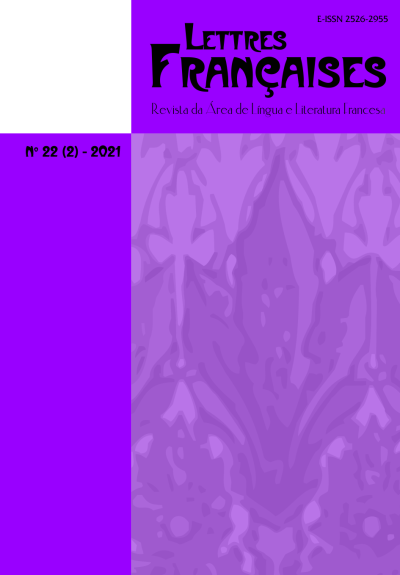René Maran e o conteur crioulo
Palavras-chave:
René Maran, Crioulidade, Conteur crioulo, OralituraResumo
Apesar do reconhecimento dos importantes movimentos literários arquitetados desde as Antilhas Francesas a partir dos anos 1930 – Negritude, Antilhanidade, Crioulidade –, René Maran tem sido categorizado de maneira geral pela crítica como um escritor africano. É evidente que a notoriedade e o reconhecimento que têm recebido as produções literárias dos países africanos é de suma importância para difusão da diversidade de histórias e culturas do sistemamundo, e, por isso também, destacar a identidade antilhana se mostra importante a fim de não reproduzir a premissa racista, oriunda da empresa colonial, da civilização contra a barbárie que pressupõe unicamente uma relação entre África- Europa, como afirma Condé (2009), quando se tratando da identidade do sujeito antilo-guianense na contemporaneidade. Analisando a obra de Maran e, mais precisamente, o romance que lhe concedeu o prêmio Goncourt, Batouala (1921), percebe-se, no entanto, aproximações com aquela que foi a primeira manifestação de cunho literário desse novo sujeito nascido do horror da escravização nas Américas: a Oralitura. Este trabalho busca, portanto, demonstrar essas semelhanças entre o romance maraniano e a figura do conteur antilhano, para enfim ressaltar sua identidade crioula, aproximando-o, portanto, dos estudos literários e culturais que têm sido desenvolvidos em língua francesa nas Américas.
Downloads
Publicado
Edição
Seção
Licença
Os manuscritos aceitos e publicados são de propriedade da Revista Lettres Françaises. É vedada a submissão integral ou parcial do manuscrito a qualquer outro periódico. A responsabilidade do conteúdo dos artigos é exclusiva dos autores. É vedada a tradução para outro idioma sem a autorização escrita do Editor ouvida a Comissão Editorial.

